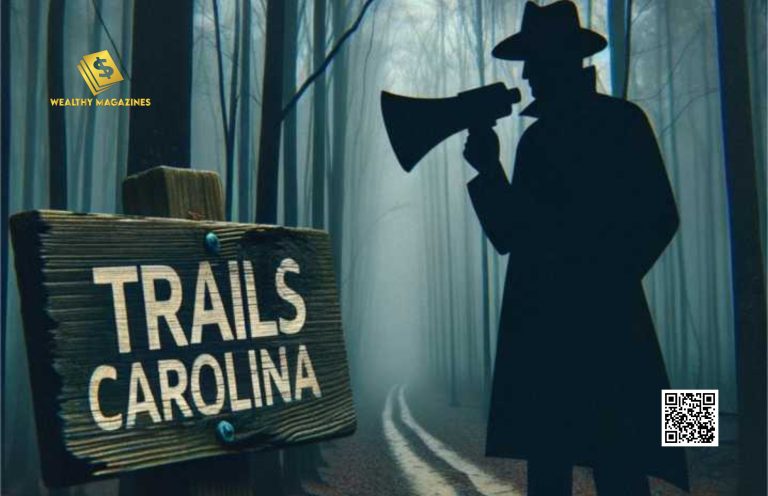If you are interested in learning about the Trails Carolina “investigation”, read on. Trails Carolina is a wilderness therapy program that caters to troubled youth. It has come under the spotlight recently due to a comprehensive investigation. This article aims to provide you with an overview of the Trails Carolina “investigation”, allegations, and the implications of this case.
What is Trails Carolina?
Trails Carolina is a therapeutic wilderness program located in the beautiful Blue Ridge Mountains of North Carolina. It claims to offer a holistic and individualized approach to help teens and young adults overcome various challenges.
It includes behavioral issues, mental health problems, substance abuse, and academic struggles. The program comprises three phases: the base camp, the expedition, and the transition. During these phases, participants engage in various activities, such as hiking, camping, gardening, yoga, art, and group therapy.
What are the allegations?
However, not everything is as rosy as it seems at Trails Carolina. In recent years, several former participants and their families have come forward with disturbing accounts of their experiences at the program. Some of the allegations include:
- Physical abuse: Some participants reported being subjected to harsh physical punishments. Like being forced to carry heavy backpacks, or sleeping on the ground without a sleeping bag. Also, enduring extreme weather conditions without proper clothing or shelter.
- Psychological abuse: Some participants reported being verbally abused, humiliated, isolated, or threatened by staff members. Some also claimed that they were denied access to their medications, phone calls, or letters from their families.
- Negligence: Some participants reported suffering from injuries, illnesses, or infections due to a lack of medical care or hygiene. Some also claimed that they were exposed to unsafe or unsanitary conditions. These were contaminated water, spoiled food, or wild animals.
- Unethical practices: Some reported being coerced or manipulated into enrolling or staying in the program. Some also claimed that they were lied to or misled about the nature or duration of the program.
These allegations paved a straight way for the Trails Carolina “Investigation”.
What is the investigation?
In response to these allegations, several authorities have launched an investigation into Trails Carolina’s operations. Multiple agencies conducted the investigation. They are the North Carolina Department of Health and Human Services (DHHS), the North Carolina Attorney General’s Office (AG), and the Federal Bureau of Investigation (FBI).
The investigation aims to determine whether Trails Carolina has violated any state or federal laws or regulations regarding child welfare, consumer protection, or civil rights.
What are the implications?
The outcome of the Trails Carolina “investigation” could have significant implications for the agency and its participants. Many affected families started questioning their decisions regarding residential treatment options for their children. In a systemic view, it exposed gaps in residential therapeutic programs for adolescents.
Depending on the findings, Trails Carolina could face legal actions, such as lawsuits, fines, sanctions, or even closure. The participants could also seek justice, compensation, or support for their physical or emotional damage. Moreover, the investigation could raise awareness and spark debate about the effectiveness and ethics of wilderness therapy programs in general.
What are the Alternatives to Trails Carolina?
After the Trails Carolina “investigation”, its alternative programs deserve at least to be brought into the spotlight. Here are some of them:
- BlueFire Wilderness Therapy: Based in Idaho, it serves adolescents aged 11 to 17 with various emotional, behavioral, or academic challenges. The program combines adventure activities, such as hiking, biking, kayaking, and skiing. The activities are carried out with individual and group therapy, family coaching, and academic support. Also, it incorporates mindfulness, yoga, and meditation practices to help students develop self-awareness and coping skills.
- Aspiro Adventure Therapy: This is a wilderness therapy program based in Utah. It serves adolescents and young adults aged 13 to 28 with various mental health, substance abuse, or developmental issues. The program uses adventure-based activities, such as rock climbing, mountain biking, canyoneering, and backpacking. This helps students overcome their challenges and discover their strengths. The program also offers individualized treatment plans, family involvement, and academic and vocational guidance.
- Outback Therapeutic Expeditions: This program is also based in Utah and serves adolescents aged 13 to 17. The program uses a nomadic model, where students move from campsite to campsite every few days. This helps them develop resilience, responsibility, and self-reliance. The program also provides individual and group therapy, family workshops, and an academic curriculum.
- Evoke Therapy Programs: It operates in Utah and Oregon and serves adolescents and young adults aged 13 to 30 with various mental health, addiction, or relationship problems. The program uses a holistic approach that integrates several techniques. Like, wilderness experiences, expressive arts, experiential learning, and evidence-based therapies help students heal and grow. The program also emphasizes family support and education.
Conclusion
The Trails Carolina “investigation” has brought to light several concerns surrounding wilderness therapy programs for adolescents. It has highlighted the need for greater transparency in such programs’ operations. It also underscored the importance of ensuring participants’ safety and well-being.
For more info visit Wealthymagazines.com

